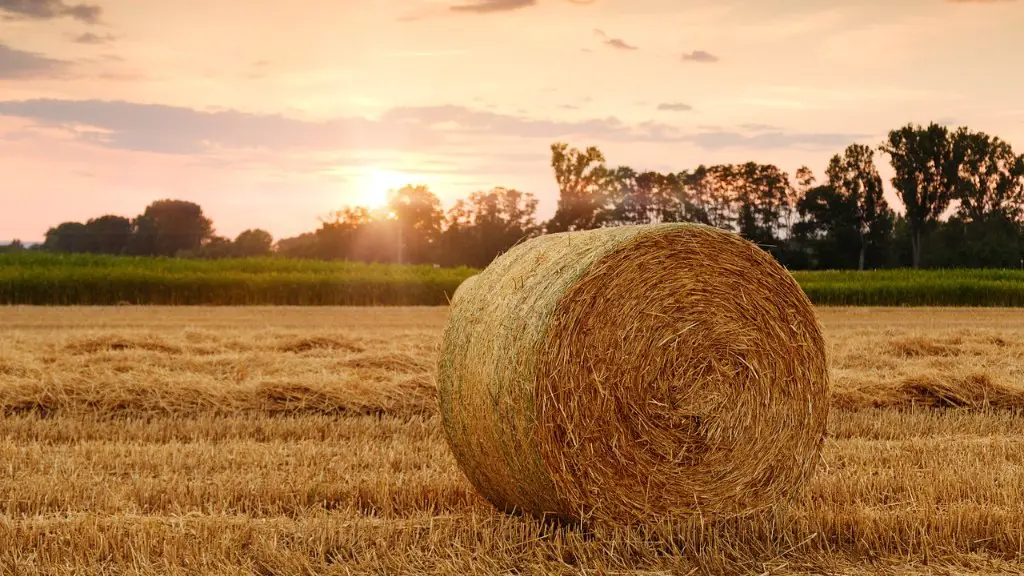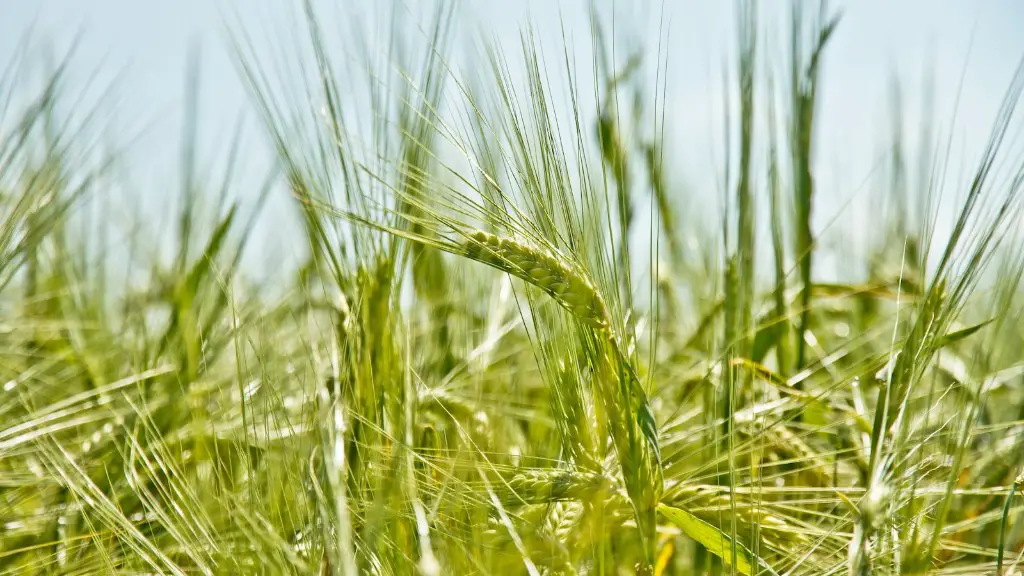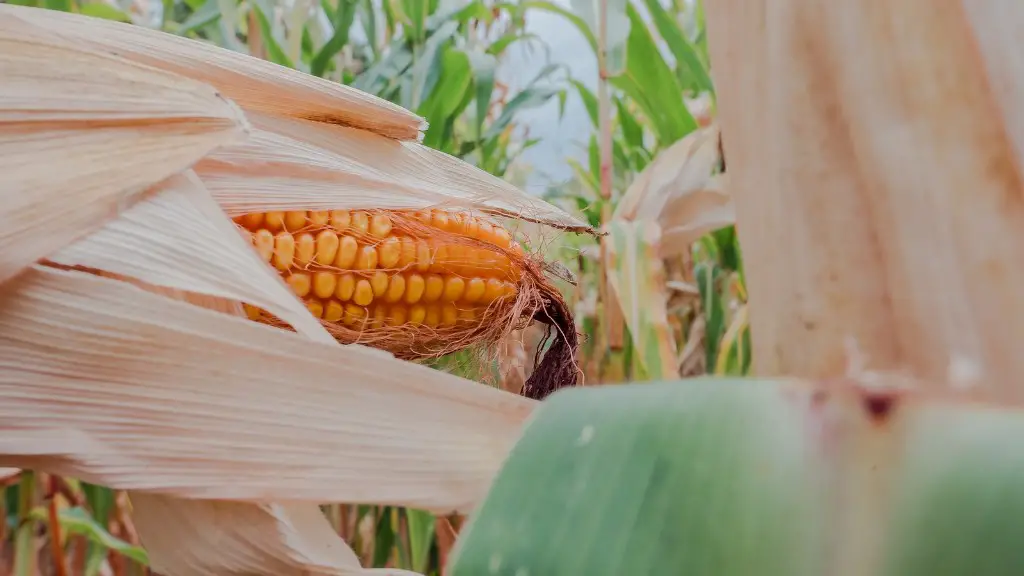Agriculture is a significant and important part of our world, and the people who work in the industry enjoy some incredibly high-paying jobs. From scientific research to the sale of specialized produce, this field offers a lucrative career for those with a passion for the land and the environment. Here are some of the highest paying jobs within the agriculture industry that you may be able to pursue with the right qualifications.
1. Plant Pathologist: Plant pathologists have the important job of studying the different types of pests and diseases that can threaten the health of crops. They study the science of agricultural disease and work with farmers to develop strategies to prevent, manage, and eliminate the threat of different diseases to crops. Plant pathologists typically make an average salary of $128,800 per year.
2. Agricultural Engineer: Agricultural engineers are responsible for designing and constructing agricultural-related equipment, such as irrigation systems and farm machinery. They also develop strategies for efficient crop production and ways to improve agricultural production that are environmentally friendly. The average salary for an agricultural engineer is around $97,000.
3. Agricultural Economist: Agricultural economists combine the skills of economics and agriculture to analyze the best ways to maximise agricultural production and profitability. They provide critical data for decision-makers in the agriculture industry, as well as in government and corporate sectors. Agricultural economists receive an average salary of $112,400.
4. Farm Manager: Farm managers are in charge of overseeing the day-to-day operations of a farm, from preparing the land for cultivation to scheduling harvests. They implement strategies to increase efficiency and productivity while also helping to meet environmental and sustainability goals. The average salary of a farm manager is $87,300.
5. Soil Scientist: Soil scientists have the important task of studying and evaluating the physical, chemical, and biological properties of soil. They help determine the best land conditions and practices for supporting various agricultural goals, such as crop production and environmental protection. Soil scientists make an average salary of $99,000.
6. Agricultural Extension Agent: Extension agents are knowledgeable agricultural experts that work to help farmers and other rural communities develop more efficient and sustainable farming practices. They provide research-based information and support to help producers solve problems and find solutions for their agricultural needs. Extension agents enjoy an average salary of $76,400.
7. Veterinary Medicine: Veterinary medicine is a broad field that encompasses animal science, animal health care, and animal food production. Veterinarians in the agricultural sector provide specialized care to animals in order to support optimal production, as well as consult and diagnose issues with farm animals. Veterinarians have an average salary of $95,000.
R&D In Agriculture
Research and development (R&D) in agriculture is the primary driving factor behind technological advancements and innovation in farming practices, leading to better crop yields and higher quality produce. Research and development jobs in agriculture include positions such as agricultural crop advisors, agricultural and food scientists, and crop cultivation specialists, among others. Average salaries in these fields range from $50,000 to $90,000, depending on the specialization.
Agricultural crop advisors provide expert advice to farmers on various aspects of crop production, such as fertilization, cultivation, and other production steps. Agricultural and food scientists are responsible for collecting and analyzing data related to plant genetics and the nutritional quality of food crops. Crop cultivation specialists are experts in the science of crop development and improvement, and they help in developing new varieties of crops that contain traits that increase yields or improve quality.
R&D jobs in agriculture also involve creating new plant protection strategies and technologies. This could include developing specialized pesticides, designing new irrigation systems, or creating high-tech farming equipment. In addition, research and development teams also work with food companies to improve the quality and taste of food products.
Research and development in agriculture is made possible by investments from governments, corporations, and private foundations. These investments enable agricultural scientists to advance their knowledge and develop innovative technology for the sector. The research and development focus in agriculture creates a wide range of career opportunities, whether you’re interested in conducting research in the lab, analyzing data, developing new products, or managing projects.
Agronomy
Agronomy is the science of producing, utilizing, and conserving natural resources from the land. It is an important field of study in agriculture and is used to maximize crop productivity while preserving the environment. Agronomists have an important role in developing strategies and techniques that can improve crop yields and productivity in an efficient, sustainable way. Agronomists typically make an average salary of $87,000.
Agronomists are experts in crop management, soil science, and pest control. They analyze past yield data to determine which practices maximize crop yields and use their knowledge of soil and water conservational practices to devise ways to conserve water and natural resources. Agronomists also work with farmers to develop disease and pest control plans, including determining which fertilizers, chemicals, and pesticides to use, and monitoring the environment for crop-damaging pests.
Agronomists may also develop soil fertility and crop management plans to ensure that crops are getting enough of the right nutrients. Their expertise can be used to help farmers identify the best practices to increase crop health and yields while minimizing the impact of climate change and other environmental factors. Agronomists also work in the fields of conservation, environmental sustainability, and resource development.
Agronomists have a wide range of responsibilities and can work in many different areas of the agricultural industry. They can work in research and development, helping to develop new farming technologies and products, or they can work in the field, helping farmers to maximize crop productivity and develop sustainable practices. Agronomists may also be responsible for educating and training farmers on new technology and farming practices.
Agricultural Marketing
Agricultural marketing is an exciting field where people specialize in marketing the products of the agricultural industry. Professionals in this field analyze current market trends and develop marketing strategies for the different products of the agricultural industry. Agricultural marketing specialists usually make an average salary of $77,000.
Agricultural marketing involves understanding the needs of the customers, including their preferences and buying decisions, and finding innovative ways to meet those needs. Professionals in this field need to have an expansive knowledge of agricultural products, processes, and marketing techniques. They typically work with farmers, distributors, and marketers to develop marketing plans, create visuals and marketing campaigns, and generate brand awareness.
Agricultural marketers may also be responsible for researching and analyzing market trends, researching customer behavior, and identifying potential customer segments. They analyze data to assess customer preferences and come up with innovative ways of pushing a product or brand. Agricultural marketers understand the importance of staying competitive in a constantly changing market and look for ways to differentiate their products from their competitors.
Agricultural marketing professionals need to be excellent communicators and have a thorough understanding of the agricultural industry. They must be able to work closely with farmers, agronomists, marketers, and distributors to ensure the success of marketing campaigns. They must also stay current on the latest industry trends and market developments.
Agriculture Education and Training
Agriculture education and training programs provide skills and knowledge to those interested in pursuing an agricultural-related career. These courses are designed to give students the tools they need to understand the concepts of agriculture and learn the best practices in the field. Agriculture education and training programs typically require a Bachelor’s degree in Agriculture or a related field, and they offer average salaries of $85,000.
Agriculture education and training programs provide in-depth instruction on all aspects of the field, including plant and animal science, agricultural business management, and agricultural techniques. Students learn about crop rotation and other techniques to maximize crop yields, as well as techniques to ensure the sustainability of farms. Students may learn about the best practices for soil fertility and pest control, as well as ways to monitor water and nutrient levels in the soil.
Agriculture education and training programs also teach students the fundamentals of agricultural economics, how to analyze the economics of the agricultural industry, and how to assess the impact of different policies on the industry. Students learn about international trade in agricultural products, how to market agricultural products, and the principals of agricultural risk management. The courses also cover the basics of crop protection and animal husbandry, essential skills for any student of agricultural sciences.
Agriculture education and training programs provide the invaluable skills and knowledge required to pursue a successful career in the field. Students gain a comprehensive understanding of the agricultural industry and are able to translate this knowledge into real-world applications. Professionals who have successfully completed agriculture education and training programs have enjoyed successful careers in the agricultural sector and are well-equipped to tackle any challenge they may face.





